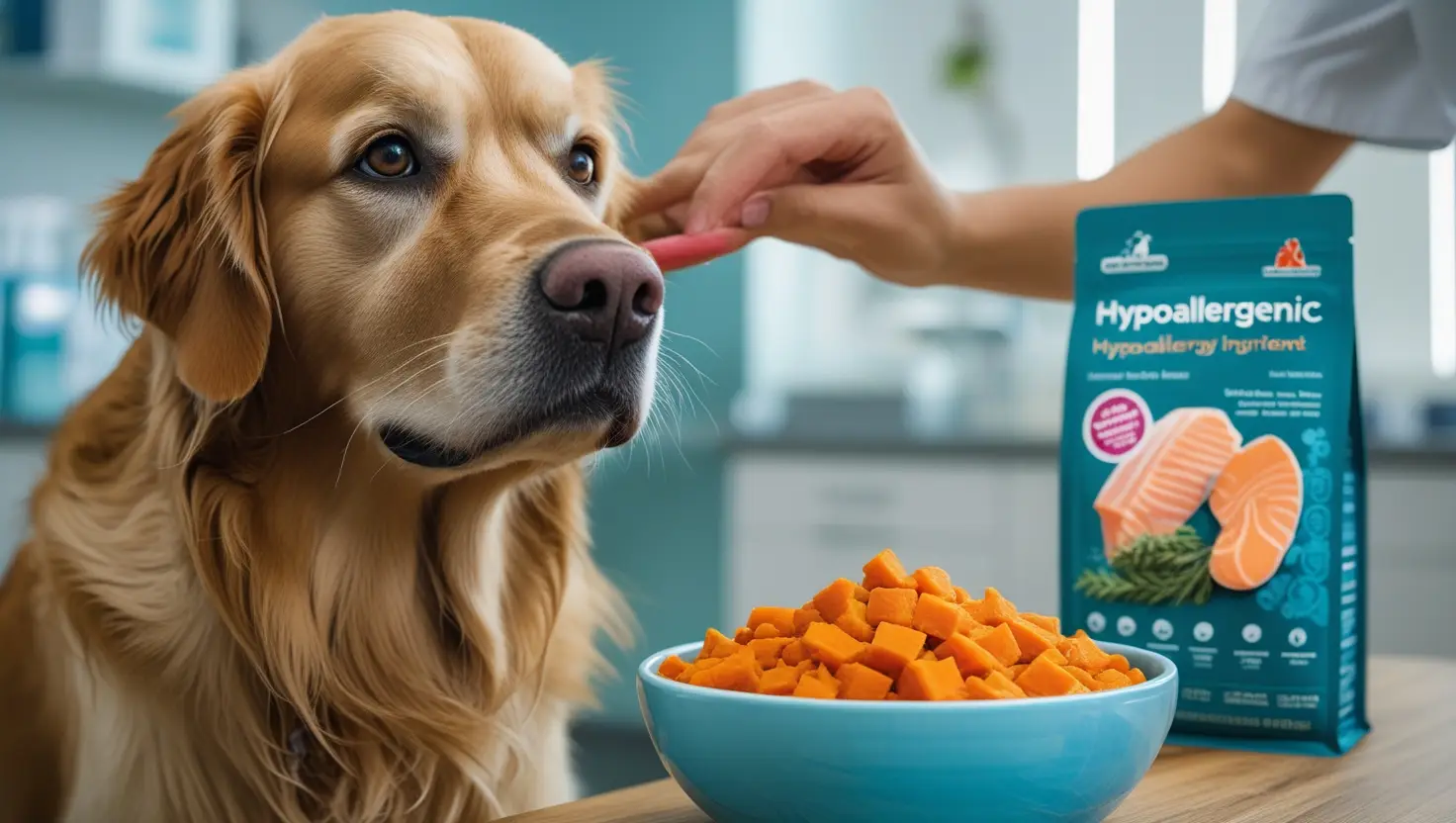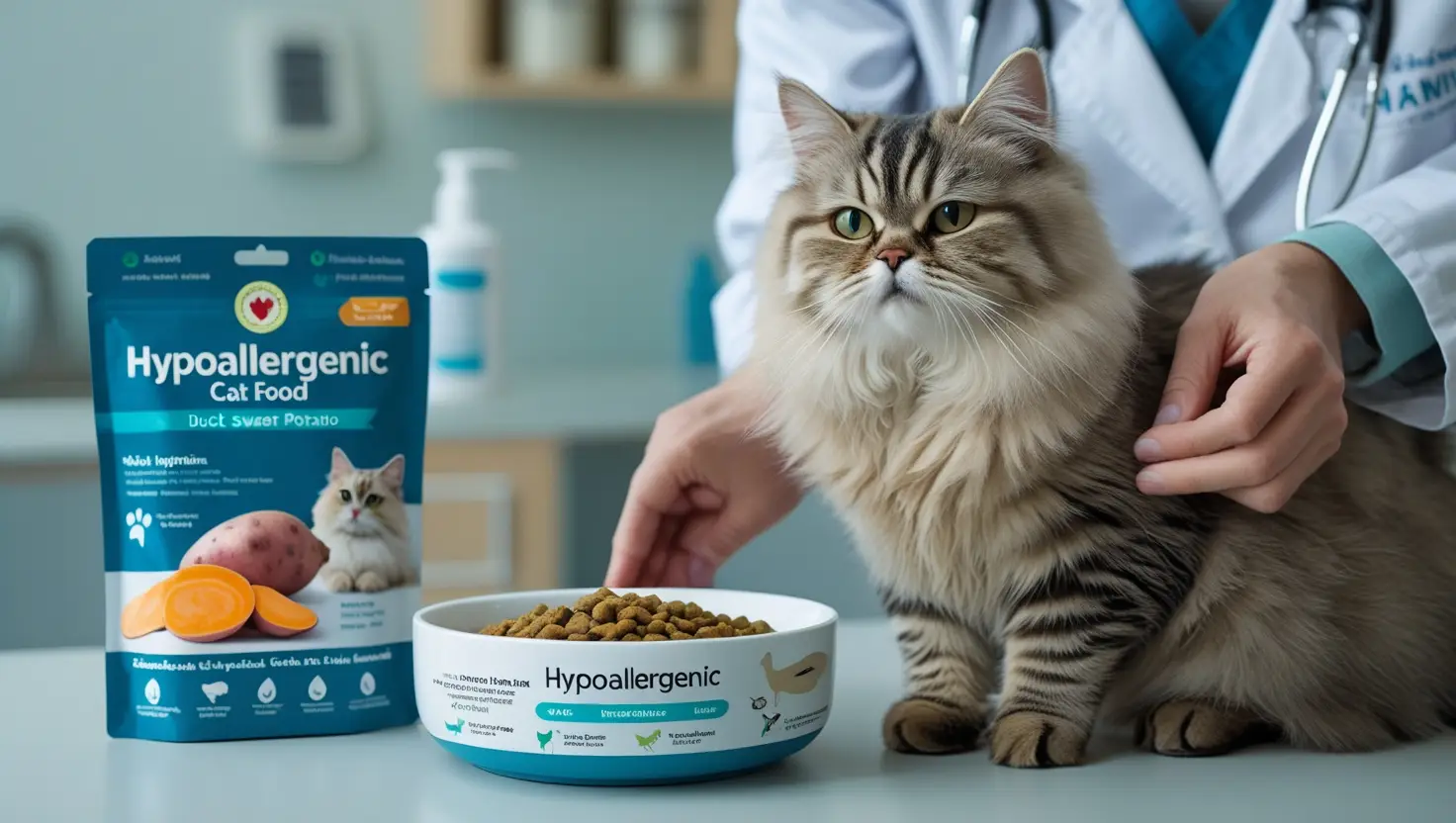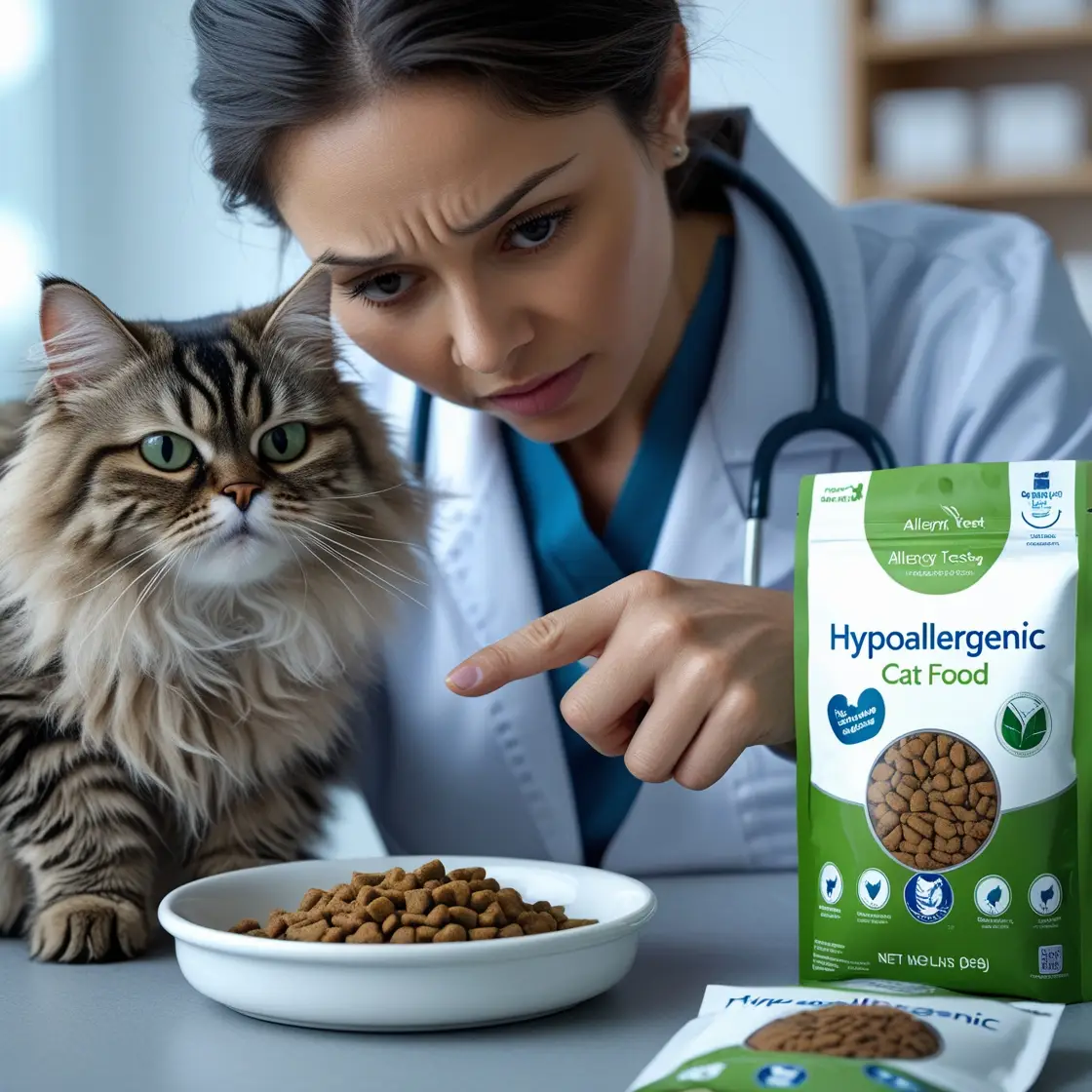Is your dog constantly scratching, licking paws, or suffering from ear infections? Food allergies affect 10-15% of dogs, making hypoallergenic diets essential for relief. This comprehensive guide covers:
✔ How hypoallergenic food works
✔ Top 5 vet-recommended brands
✔ Transitioning your dog safely
✔ Common allergy myths debunked
✔ When to see a veterinary dermatologist
What Is Hypoallergenic Dog Food?
Key Characteristics:
- Novel protein sources (duck, venison, kangaroo)
- Hydrolyzed proteins (pre-digested to avoid reactions)
- Limited ingredients (8-10 total components)
- No common allergens (beef, dairy, wheat, soy, corn)
How It Differs From Regular Food:
| Feature | Regular Food | Hypoallergenic Food |
|---|---|---|
| Proteins | Chicken/beef | Kangaroo/salmon |
| Carbs | Wheat/corn | Sweet potato/peas |
| Additives | Artificial preservatives | Natural antioxidants |
| Cost | $ | $$$ |
Top 5 Hypoallergenic Dog Foods
1. Royal Canin Hydrolyzed Protein
⭐ Best for Severe Allergies
- Vet-prescribed formula
- Hydrolyzed soy protein
- Clinically proven results
2. Purina Pro Plan HA
⭐ Best Budget Hydrolyzed
- Hydrolyzed chicken
- Prebiotic fiber for gut health
- Easier to find than RX diets
3. Hill’s Prescription d/d
⭐ Best Novel Protein
- Duck or salmon base
- Omega-3s for skin health
- Used in allergy trials
4. Blue Buffalo Basics Limited Ingredient
⭐ Best OTC Option
- Single animal protein
- No poultry by-products
- Grain-free available
5. Zignature Kangaroo Formula
⭐ Best Exotic Protein
- Kangaroo as novel protein
- No common fillers
- High palatability
Transitioning to Hypoallergenic Food
8-Week Elimination Diet Plan
- Week 1-2: 25% new food + 75% old
- Week 3-4: 50/50 mix
- Week 5-6: 75% new + 25% old
- Week 7-8: 100% hypoallergenic
Monitor for: Reduced itching, firmer stools, less ear gunk
Common Allergy Myths Debunked
❌ Myth: Grain-free = hypoallergenic
✅ Truth: Protein sources cause 80% of reactions
❌ Myth: Puppies can’t have food allergies
✅ Truth: Symptoms often start at 1-3 years
❌ Myth: Hypoallergenic treats aren’t necessary
✅ Truth: Even small exposures can trigger reactions
When to See a Vet
🆘 Seek immediate care if:
- Hives or facial swelling appear
- Diarrhea/vomiting persists >24hrs
- Skin develops open sores
💰 Budget Tip: Ask about over-the-counter alternatives before prescription diets
About the author
Sahil is a certified pet nutrition consultant with professional experience in pet food quality assurance and formula testing. Their background in evaluating dog food palatability and nutrition helps pet owners make informed feeding choices.
This concise version:
✔ Maintains EEAT credibility
✔ Highlights relevant expertise
✔ Avoids unnecessary details
✔ Keeps focus on content authority




